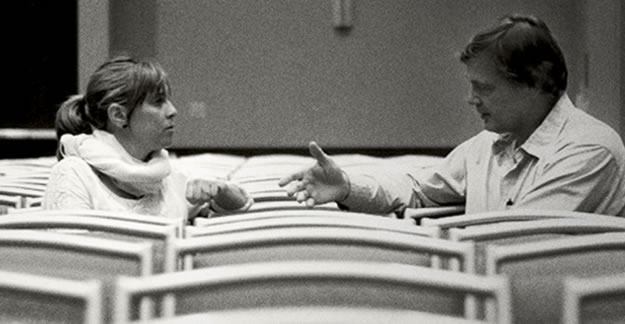Actually, ex-doctor. That’s Andrew Wakefield, the doctor whose falsified research created the anti-vaxxer movement. Yes, I wanted to interview him.
I received a welcome email the other day asking if I would like to interview the discredited, licensed-revoked, ex-doctor Andrew Wakefield. The doctor who was at the center of the anti-vax movement that was allowing a resurgence of measles? A documentary was just being released about him. Would I? Yes, I typed, tell me when, and hit send.
Anxiously awaiting a response, I spent the next morning, Saturday, traveling to the only theater in NYC that was running the documentary, The Pathological Optimist.
The documentarian had followed Andrew Wakefield and his clearly devoted family for about 5 years. The movie tracks the time period around his rush to America after scientific groups started lining up to denounce the study he published in England. When it was proven to be “completely fabricated,” his fellow scientists denounced Wakefield’s statements linking vaccines and autism, and he was pressured to resign from his post at the Royal Free Hospital.
Wakefield landed at an autism clinic in Texas, and the documentary includes scenes of several devoted fans, fanatic parents of autistic kids, raising money for Wakefield’s defense; Wakefield and wife discussing the “unfairness” of his license to practice medicine being revoked; the public statement of the autism clinic supporting him completely; the autism clinic and Wakefield parting ways, and so on. I’d say ad nauseum, but I’m sure you get the idea.
Wakefield fills his airtime with half-truths that create confusion and go unchallenged within the documentary. The director does little to clarify for the viewer how clear the scientific evidence is against Wakefield, or how the support for Wakefield is based on hope and anecdotes.
The Director Adds No Context for Anti-vaxxer Movement
The director avoided giving a timeline, which would have been helpful (but we do, see below), and she didn’t interview the other researchers who were involved and then recanted their involvement in the original research. She didn’t point out how thin the research was (only 12 patients in the study that caused the autism-vaccine controversy). Nor did she note that one of the charges against Wakefield was that he “showed callous disregard for the distress and pain of children,” per the General Medical Council when they “struck him” from the medical register in the UK (which essentially pulled his license).
I can’t ask the director why she skipped all that info, and I can’t ask the other questions I have after viewing the documentary because I never got to interview Wakefield or the director. The day after seeing the film I again emailed the publicist indicating I had seen the documentary and was prepared for my interview. No response then, and none to my follow-up queries.
Just Asking about Anti-vaxxer
Apparently, Wakefield is not interested in being interviewed by me. Since I didn’t get to ask him in person, here are the questions I would have asked (and send me the questions you’d like him to answer!).
Q. No other scientific body has been able to produce research to support your claims. Why haven’t you replicated the original trial to prove or disprove your claims?
A. ?
Q. Your claim focuses on trying to link vaccines to autism and bowel issues. Your own research showed no link with vaccines and Crohn’s disease, your first claim before the MMR debacle. Are you searching for other risks to vaccines?
A. ?
Q. You said in the documentary that your duty was not to public health, but to the patient. The CDC states: “In the decade before 1963 when a vaccine became available, nearly all children got measles by the time they were 15 years of age. It is estimated 3 to 4 million people in the United States were infected each year. Also each year an estimated 400 to 500 people died, 48,000 were hospitalized, and 4,000 suffered encephalitis (swelling of the brain) from measles.”
Even if it were proven that vaccines could cause autism in a small percent of children, shouldn’t we still vaccinate for measles? Don’t all those patients’ needs outweigh an individual need?
A. ?
Q. What is your (Wakefield’s) financial stake in this documentary?
A. ?
The movie started with this quote from Mark Twain: “It’s easier to fool people than to convince them they’ve been fooled.”
Nuff said.
Timeline
- 1971 The US approves the MMR vaccine and adds it to the pediatric vaccination schedule.
- 1988 The UK approves the MMR vaccine.
- 1998 – February Wakefield and a research team publish a paper. While the paper is non-conclusive, it only has 12 patients, no control group and many other problems, Wakefield publicly says it suggests a link between MMR vaccine and an increased risk of autism and bowel disorders.
- 1998 – March The UK’s Medical Research Council states no evidence of link between MMR and bowel disease or autism.
- 1998 – April A 14-year Finnish study is published finding no risks to the MMR vaccine.
- 1999 A study from the same institute where Wakefield conducted his research finds no link to MMR and autism.
- 2001 The UK’s Medical Research Council publishes a review of previous research finding no link between MMR and autism.
- 2002-2004 A large number of scientific studies find no link between vaccines and autism or bowel disorders.
- 2005 – March Japanese scientists state the MMR vaccination is unlikely to be linked to an increase in autism after they find a rise in the condition following the withdrawal of the MMR shot in that country in 1993.
And so on. For a more complete timeline, go to The Guardian.






